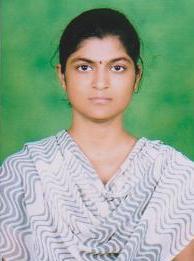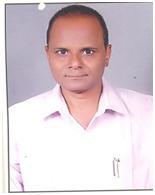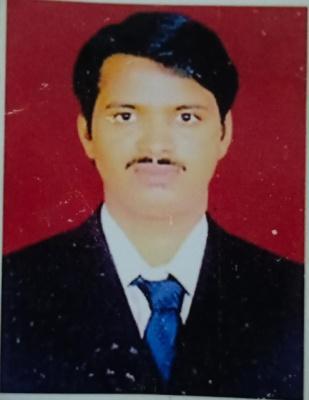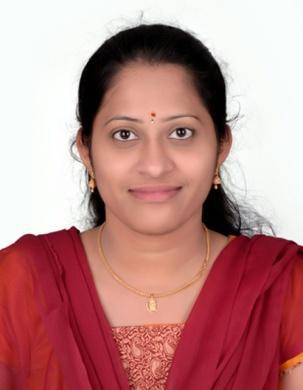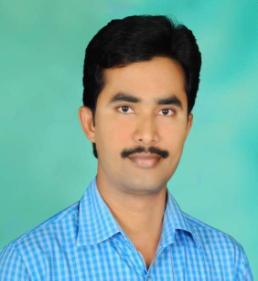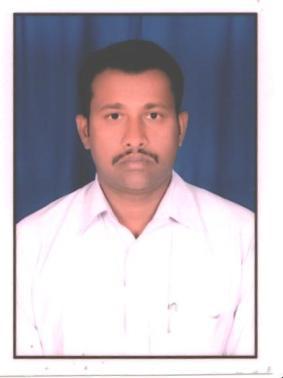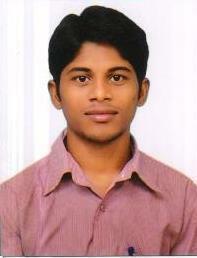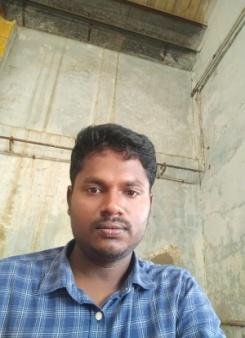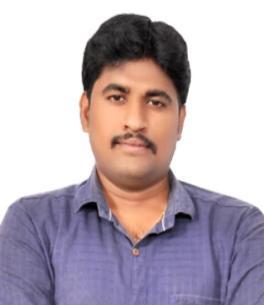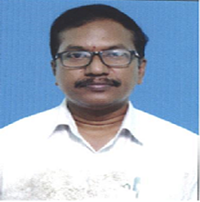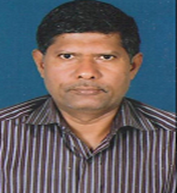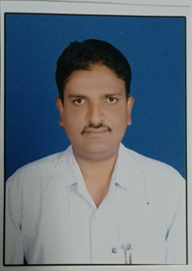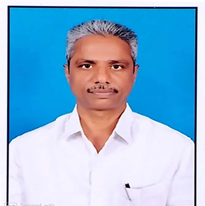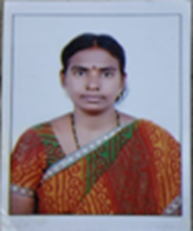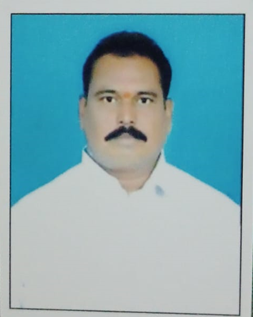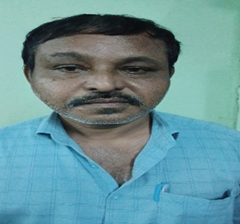Welcome to ESC Government Polytechnic, Nandyal
Vision:
To be a Beacon of Technical education in the state and country to produce committed skilled workforce that would optimize the resources, efforts and time and use state of art technology to achieve the production targets and contribute significantly to the industrial prosperity of the country.Mission:
1. To provide the most effective learning experiences with due weight age to real life practices in a serene and enjoyable academic environment, encouraging the learners active participation in teaching-learning process using modern teaching methods 2. To provide tools like ICT and to nurture life skills among students to be successful in career 3. To provide periodical training to the teaching faculty to keep abreast of technological developments and teaching methodologies 4. To be empathetic to the concerns of the student community and to serve with high degree of commitment and integrity
Departments
PROGRAMME OUTCOMES (POs)
- Basic and discipline specific knowledge: Apply knowledge of basic mathematics, science and engineering fundamentals and engineering specialization to solve the engineering problems.
- Problem analysis: Identify and analyse well-defined engineering problems using codified standard methods.
- Design/Development of solutions: Design solutions for well-defined technical problems and assist with the design of systems components or processes to meet specified needs.
- Engineering tools, Experimentation and Testing: Apply modern engineering tools and appropriate technique to conduct standard tests and measurements.
- Engineering practices for society, sustainability and environment: Apply appropriate technology in context of society, sustainability, environment and ethical practices.
- Project Management: Use engineering management principles individually, as a team member or a leader to manage projects and effectively communicate about well defined engineering activities Life-long learning:
- Life-long learning: Ability to analyse individual needs and engaging updating in the context of technological changes
PROGRAM SPECIFIC OUTCOMES (PSO)
- Anability to apply discipline - specific knowledge to solve core and/or applied Civil Engineering
- Anability to plan and perform experiments , practices and to use the results to solve Civil Engineering
- An ability to applyappropriate technologies and tools with an understanding of the
VISION OF THE DEPARTMENT
To create a unique identity of the Department by achieving the excellent standards of quality technical education keeping a pace with the rapidly changing technologies and to produce Civil Engineers of global standards with the capability of accepting new challenges.
MISSION OF THE DEPARTMENT
M1. To promote academic growth in the field of Civil Engineering by offering state-of-the art Diploma Program .
M2. To provide theoretical knowledge base and practical exposure in all areas of Civil Engineering for industry and societal needs.
M3. To inculcate higher moral and ethical values among the students to become competent Civil Engineers with overall leadership qualities.
PROGRAM EDUCATIONAL OBJECTIVES
PEO1. To produce professionally competent Civil Engineers, capable of applying the knowledge of contemporary Science and Technology, to meet the challenges in the field of Civil Engineering and to serve the Society.
PEO2. To prepare the Civil Engineers ready to work in industry, Government or other organizations in different capacities involving individual and team work.
PEO3. To inculcate among the students the sense of ethics, morality, creativity, leadership, professionalism, self-confidence and independent thinking.
PEO4. To inculcate in the students the ability to take up the innovative projects and to conduct investigations of complex Civil Engineering problems,thus urging them for higher studies.
VISION OF THE DEPARTMENT
Striving continuously in pursuit of excellence in imparting knowledge with skills in Mechanical Engineering at diploma level to improve the opportunities in employment and higher learning
MISSION OF THE DEPARTMENT
|
M1 |
Use of technology enhanced tools and techniques by motivated and qualified faculty for enhancement of knowledge, understanding of principles, concepts and latest trends in mechanical engineering. |
|
M2 |
Modernization of workshops and laboratories as per the curriculum specified by the State Board of Technical Education, Andhra Pradesh. |
|
M3 |
Conduct of laboratories, guest lectures, industrial visits and industrial training for better understanding of critical concepts of Mechanical Engineering. |
|
M4 |
Provide opportunities for developing multidisciplinary skills, communication skills, professional attitude and ethics. |
PROGRAMME EDUCATIONAL OBJECTIVES (PEOs)
|
PEO1 |
Fundamental knowledge of mathematics, basic sciences and basic interdisciplinary engineering to apply day to day challenges in the field of mechanical engineering. |
|
PEO2 |
Knowledge in principles, concepts and techniques in mechanical engineering area to solve contemporary issues. |
|
PEO3 |
Application of the principles, concepts and techniques in mechanical engineering area to solve contemporary issues and gain on hand experience. |
|
PEO4 |
Effective communication on activities regarding planning, designing, manufacturing and servicing functions with engineering community |
PROGRAMME OUTCOMES (POs)
- Basic and discipline specific knowledge: Apply knowledge of basic mathematics, science and engineering fundamentals and engineering specialization to solve the engineering problems.
- Problem analysis: Identify and analyze well-defined engineering problems using codified standard methods.
- Design/Development of solutions: Design solutions for well-defined technical problems and assist with the design of systems components or processes to meet specified needs.
- Engineering tools, Experimentation and Testing: Apply modern engineering tools and appropriate technique to conduct standard tests and measurements.
- Engineering practices for society, sustainability and environment: Apply appropriate technology in context of society, sustainability, environment and ethical practices.
- Project Management: Use engineering management principles individually, as a team member or a leader to manage projects and effectively communicate about well-defined engineering activities.
- Life-long learning: Ability to analyze individual needs and engaging updating in the context of technological changes.
PROGRAMME SPECIFIC OUTCOMES (PSOs)
- PSO-1: Ability to employ in fields of engineering such as design, testing, manufacturing, processing, safety, quality control, and other business sectors.
- PSO-2: Ability to progress through advanced degree or certificate programs or participates in continuing education in engineering, business, and/or other professionally related fields.
- PSO-3: Achieve positions of increased responsibility within the organizations.
Our Faculty
Applied scienceis the application of existing scientific knowledge to practical applications, liketechnologyor inventions.Withinnatural science, disciplines that arebasic science, also calledpure science, develop basicinformationto predict and perhaps explain and understand phenomena in the natural world. Applied science is the use of scientific processes and knowledge as the means to achieve a particular practical or useful result. This includes a broad range of applied science related fields fromengineering,business,medicinetoearly childhood education.
Our Faculty
VISION
Develop Electronics and Communication Engineering professionals competent to face the global challenges in a progressive environment conducive to learn technical knowledge, skills blended with ethics and values, to serve the society and to better it for a happy and comfortable living.
MISSION
| M1 | To provide a competitive learning environment, through a need-based curriculum designed in collaboration with industry, conducive for high quality education emphasising on transfer of knowledge and skill development essential for the profession and the society as well. |
| M2 | To nurture higher order leadership qualities and ethics and values in students to enable them to be leaders in their chosen professions while maintaining the highest level of ethics. |
| M3 | To encourage the spirit of inquisition to promote innovation and entrepreneurship strengthened with life skills to sustain the stress. |
| M4 | To foster effective interactions and networking with all the stake holders so as to work towards the growth and sustainability of the society and environment. |
Programme Educational Objectives (PEOs)
Diploma in Electronics and Communication Engineering programme is steadfast to transform students in to competent professionals with qualities of good human values and responsible citizens. On completion of the Diploma programme, the students should have acquired the following characteristics
| PEO1 | To apply technical knowledge and management principles in analysing and planning problems in the field of electronics and Communication Engineering while ensuring maximization of economic benefits to society and minimization of damage to ecology and environment. |
| PEO2 | To be life-long learners with sprit of enquiry and zeal to acquire new knowledge and skills so as to remain contemporary and possess required professional skills. |
| PEO3 | To enhance entrepreneurial, communication and other soft skills, which will enable them to work globally as leaders, team members and contribute to nation building for the betterment of the society. |
| PEO4 | To make them strongly committed to the highest levels of professional ethics and focus on ensuring quality, adherence to public policy and law, safety, reliability and environmental sustainability in all their professional activities |
PROGRAMME OUTCOMES(POs)
- Basic and discipline specific knowledge: Apply knowledge of basic mathematics, science and engineering fundamentals and engineering specialization to solve the engineering problems.
- Problem analysis: Identify and analyse well-defined engineering problems using codified standard methods.
- Design/Development of solutions: Design solutions for well-defined technical problems and assist with the design of systems components or processes to meet specified needs.
- Engineering tools, Experimentation and Testing: Apply modern engineering tools and appropriate technique to conduct standard tests and measurements.
- Engineering practices for society, sustainability and environment: Apply appropriate technology in context of society, sustainability, environment and ethical practices.
- Project Management: Use engineering management principles individually, as a team member or a leader to manage projects and effectively communicate about well-defined engineering activities.
- Life-long learning: Ability to analyse individual needs and engaging updating in the context of technological changes.
PROGRAMME SPECIFIC OUTCOMES(PSOs)
- An ability to understand the concepts of basic Electronics & Communication Engineering and to apply them to various areas like Signal processing, VLSI, Embedded systems, Communication Systems, Digital & Analog Devices, etc.
- An ability to solve complex Electronics and Communication Engineering problems, using latest hardware and software tools, along with analytical skills to arrive cost effective and appropriate solutions.
- Wisdom of social and environmental awareness along with ethical responsibility to have a successful career in the field of Electronics and Communication Engineering and to sustain passion and zeal for real-world applications in the field of Electronics using optimal resources as an entrepreneur.
Vision
To provide Quality Education in Electrical &Electronics Engineering by effective teaching and learning environment with practical exposure, making the students industry ready and to Live in competitive world or pursue higher education.
Mission
- To impart Quality Education in Electrical & Electronics Engineering with practical exposure to the technological advancements making the students ready for industry or his interest field.
- To provide them with 21st century skills such as critical thinking, creativity and problem solving, Usage of ICT based applications and to face the new challenges.
- To enhance his/her life skills and in order to involve them towards the development of society.
- To prepare the students for higher education
Program Educational Objectives (PEOs)
On completion of Diploma in Electrical and Electronics Engineering programme, the students should have acquired the following characters tics.
|
PEO No. |
Program Educational Objectives Statements |
|
PEO1 |
An ability to apply knowledge of mathematics, Science , engineering and management principles in solving problems in the field of Electrical and Electronics Engineering. |
|
PEO2 |
To be life-long learners with sprit of enquiry and zeal to acquire new knowledge and skills so as to remain contemporary and posses required professional skills. |
|
PEO3 |
To enhance entrepreneurial, communication and other soft skills, which will enable them to work globally as leaders, team members and contribute to nation building for the betterment of the society. |
|
PEO4 |
To make them strongly committed to the highest levels of professional ethics and focus on ensuring quality, adherence to public policy and law, safety, reliability and environmental sustainability in all their professional activities. |
PROGRAMME OUTCOMES(POs)
- Basic and discipline specific knowledge: Apply knowledge of basic mathematics, science and engineering fundamentals and engineering specialization to solve the engineering problems.
- Problem analysis: Identify and analyse well-defined engineering problems using standard methods
- Design/Development of solutions: Design solutions for well-defined technical problems and assist with the design of systems components or processes to meet specified needs
- Engineering tools, Experimentation and Testing: Apply modern engineering tools and appropriate technique to conduct standard tests and measurements.
- Engineering practices for society, sustainability and environment: Apply appropriate technology in context of society, sustainability, environment and ethical practices.
- Project Management: Use engineering management principles individually, as a team member or a leader to manage projects and effectively communicate about well-defined engineering activities.
- Life-Long learning: Ability to analyse individual needs and engaging updating in the context of technological changes.
PROGRAMME SPECIFIC OUTCOMES (PSOs)
- An ability to understand the basic concepts of Electrical & Electronics Engineering and to apply them to various areas like Wiring Installations, Lighting Schemes, Static & Rotating machinery, drawing layouts, Power System (Generation, Transmission, Distribution& utilisation), Digital electronics, power control devices, Computer programming, managerial skills and the use SMART technologies.
- An ability to Repair, develop and troubleshooting of Various Electrical & Electronics equipment’s by using suitable tools and techniques, to design Customised applications in Electrical & Electronics Engineering at economic and efficient considerations, to develop software & hardware solutions.
- Wisdom of social and environmental awareness along with ethical responsibility to have a successful career and to sustain passion and zeal in the field of Electrical & Electronics Engineering for real-world applications in the field of Electronics using optimal resources as an entrepreneur.





